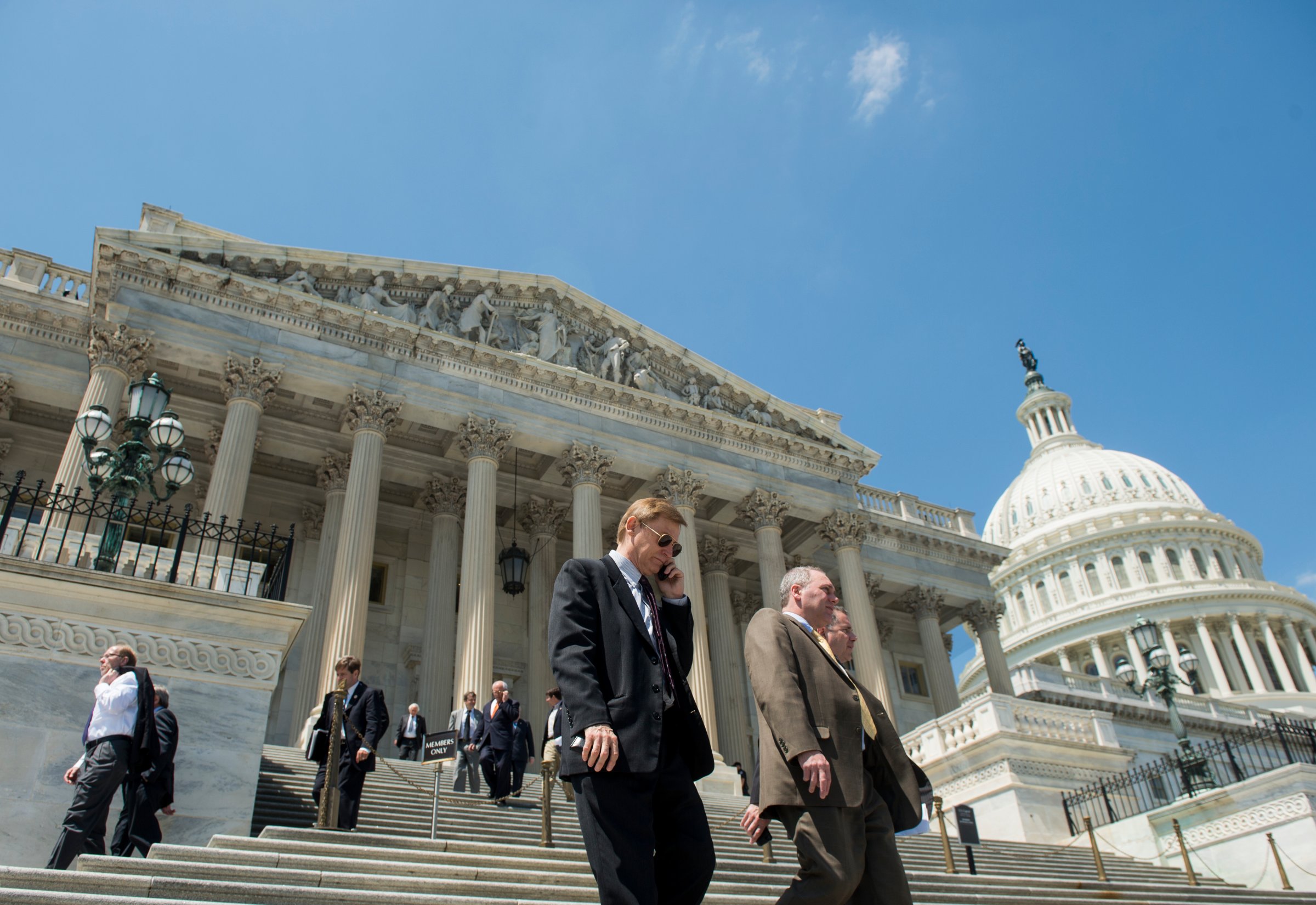
Democrats want the Republicans to pick another fight with them over raising the U.S. debt limit, and it looks like the Republicans may oblige, thanks to a little known provision in ObamaCare. At stake are the full faith and credit of the U.S. dollar, the GOP‘s (outside) shot at capturing the Senate and the party’s prospects for widening their influence in the House during this fall’s elections.
Despite a score of polls which show that the country holds the GOP primarily responsible for shutting down the government in October, and for leading the country to the brink of default in other debt ceiling showdowns over the past three years, some leading Republicans say they will look to the late February debt limit deadline to extract concessions.
“When the debt ceiling is hit, I think that’s an opportune time to also talk about making the reforms to control spending,” says Rep. Steve Scalise (R-La.), chairman of the broad House conservative coalition known as the Republican Study Committee. “What we’ve been looking at recently…is this high risk corridor,” says Scalise.
The risk corridor is a feature of ObamaCare that will reimburse insurers with fewer healthy people than they originally expected to enroll, acting as a cost buffer during the experimental early years of the health reform program. The insurers will be paid by the Department of Health and Human Services if their costs are more than 103% of their target amount. Likewise, if a surprisingly high number of healthy people sign up, the insurers will pay the HHS. The program will only run through 2016, according to the American Academy of Actuaries, because “as more data becomes available on the health spending patterns of the newly insured, the ability to set premiums accurately should improve, thereby reducing the need for risk corridors.”
Some Republicans are calling the program a government bailout of insurance companies, and want to do away with it in negotiations over raising the U.S. debt limit, which the Treasury says it will reach at the end of next month. Conservative columnist Charles Krauthamer floated the idea of doing away with the risk corridor reimbursement in his first Washington Post column of the year, calling on the GOP to “attach the anti-bailout bill to the debt ceiling. That and nothing else.”
At least one influential Republican has signed on for the idea. “I think it would be a real tough position to sell to say that when we’re running out of money, when we’re maxing out our credit card, we should also be borrowing money from China to bail out insurance companies,” says Scalise.
It is not clear whether other Republicans will decide to push that or other concessions, or whether they will ultimately back down and raise the debt limit without much fanfare. That will come down to a calculation of political and economic costs.
The Government Accountability Office estimated that the delay in raising the debt limit in 2011 cost the Treasury Department $1.3 billion that year alone, while the Bipartisan Policy Center tallies the cost at nearly $19 billion over 10 years. The fight also lowered the country’s S&P bond rating from its sterling AAA status to AA+.
Jennifer Duffy, in her most recent Senate overview for the Cook Political Report, mentioned that the debt ceiling could cause “real problems” for Republican candidates this cycle. “Senate Democrats are very adept at setting traps for their Republican colleagues,” writes Duffy. “The test will be whether Republicans can avoid them.”
The Republicans seem to be moving in the direction of a fight. In October, Mitch McConnell told National Review, “We’re not going to do this again in connection with the debt ceiling,” noting that it’s “unlikely” President Obama “will do much” on his signature health care issue. Just two months later, however, McConnell told reporters he “can’t imagine” passing a “clean” debt ceiling raise, because “Every time the president asks us to raise the debt ceiling is a good time to try to achieve something important for the country.” Last night, Speaker Boehner spokesman Michael Steel said that while “we should not default on our debt, or even get close to it,” a “’clean’ debt-limit increase simply won’t pass in the House.”
Democrats, for their part, seem to be hoping for a fight. In his end of the year press conference, President Obama said, “we’re not going to negotiate with this Congress on the bills that it has accrued.”
More Must-Reads from TIME
- Donald Trump Is TIME's 2024 Person of the Year
- Why We Chose Trump as Person of the Year
- Is Intermittent Fasting Good or Bad for You?
- The 100 Must-Read Books of 2024
- The 20 Best Christmas TV Episodes
- Column: If Optimism Feels Ridiculous Now, Try Hope
- The Future of Climate Action Is Trade Policy
- Merle Bombardieri Is Helping People Make the Baby Decision
Contact us at letters@time.com